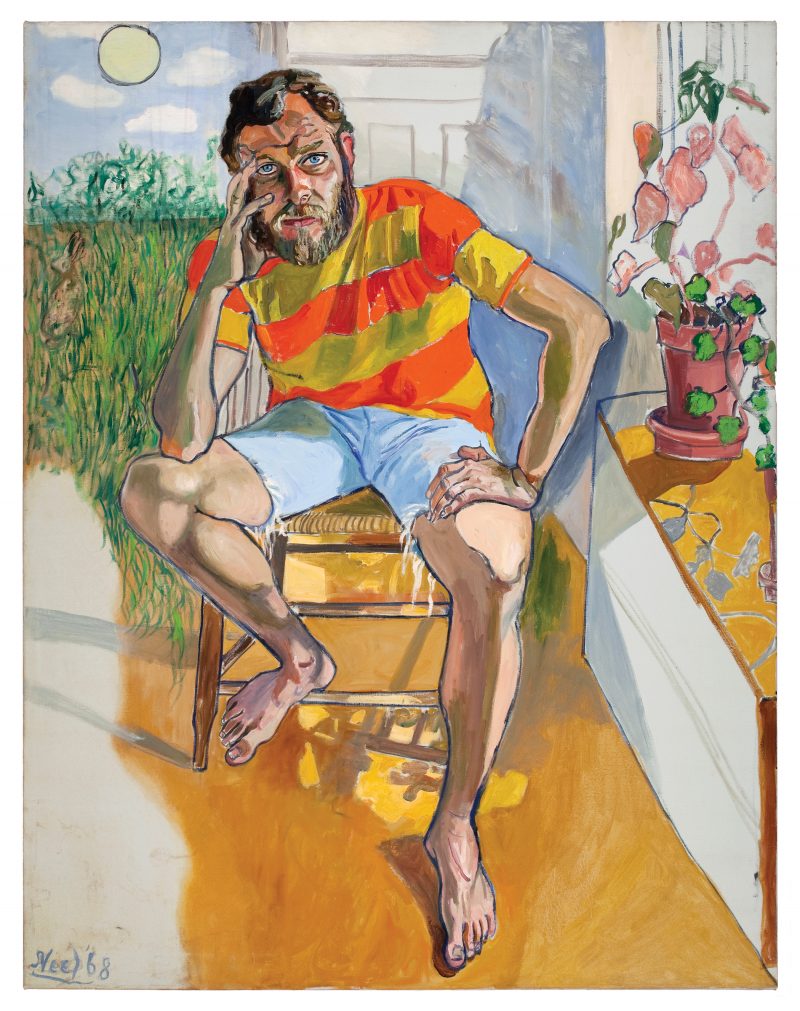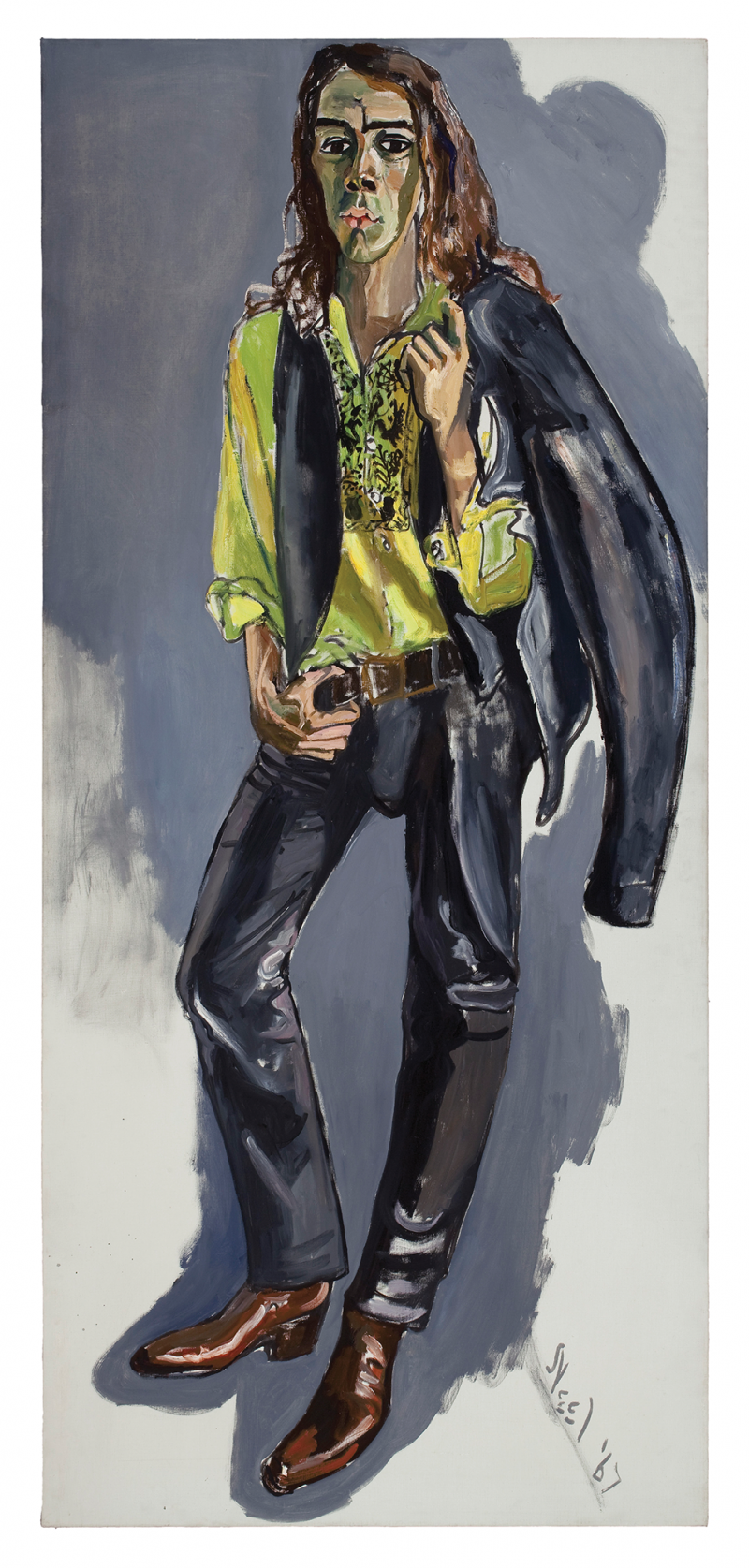Aye, if only Alice Neel had ever had the occasion to take Harry Berger’s measure!
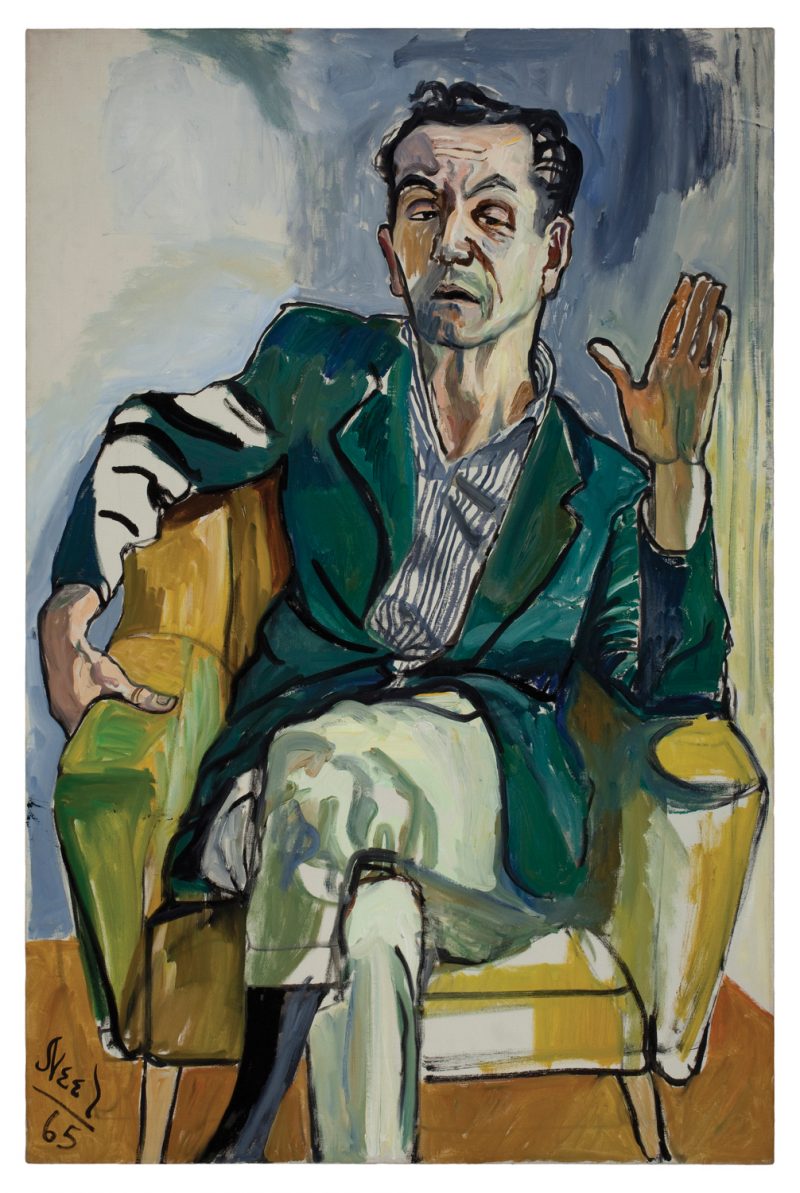
With every passing year since her death in 1984, it’s becoming clearer and clearer that the painter Alice Neel was one of the century’s greatest portraitists (and I use the term century advisedly: she was born in 1900). Born in Philadelphia and felled quite early by tragedy (the death of a young daughter, abandonment by a first husband, institutionalization following a nervous breakdown), Neel had made her way to New York by the ’30s, first in Greenwich Village, and then, in order to get away from its hothouse artsy environs, up to Spanish Harlem. Perhaps owing to those early tragedies, she was sympathetic to the anxious expressionist spirit of northern European and Spanish artists—Munch, Goya. But she was also imbued with a fervent social conscience and hovered about uptown Communist circles (though apparently never becoming a member of the party itself). Those leanings may have played against her in the McCarthyite ’40s and ’50s, during which she lived a fairly marginal existence, known among artists and intellectuals but not far beyond her neighborhood. Throughout it all, she honed a distinctively sly, direct, and often quite haunting portrait style. With the upsurge of feminism in the late ’60s and early ’70s, she came to be championed as a pioneering role model, and late-career shows (especially at the Whitney) brought increasing acclaim. Toward the end of her life, she was even appearing, quite winningly, on Johnny Carson’s Tonight Show. This past year has seen a major touring museum show of her work, Painted Truths (Houston, Whitechapel in London, and Malmö), as well as a more focused portrait show at the L.A. Louver Gallery.
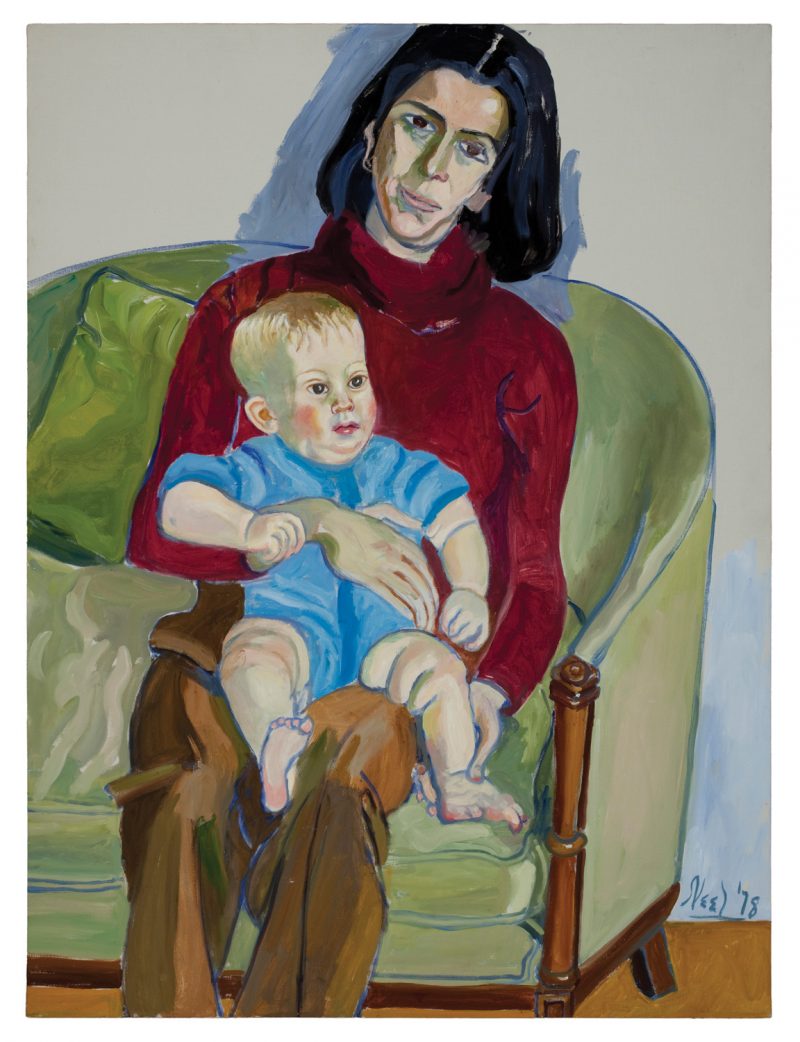
Harry Berger Jr., for his part, at eighty-five, virtually the same age and every bit as vivid as Neel ever got, continues to be one of our country’s finest, most penetrating and protean cultural critics and theorists. Originally a Spencerian out of Yale, Berger spent most of his career at Cowell College at the University of California, Santa Cruz, which is where, incidentally, I first encountered him, as the faculty leader of my subsection of the freshman core. (“What a crock!” I remember declaring categorically, two weeks into my college career, as the class was tackling The Republic. “No wonder Socrates always wins these arguments, the guys he’s arguing with are a bunch of morons—‘Yes, Socrates, you are right, it must be so’—what total bull, the game is completely rigged.” At which point Berger carefully took my measure and pronounced, “But the thing of it is, Mr. Weschler, Plato was a genius and you are a freshman, and he is playing you like a piano: maybe you should just quiet down a bit and listen to the music.” Only the first of many seminal lessons I would take from him over the years.) Although he published widely throughout this period in a variety of specialist academic journals across a whole array of subjects—Renaissance studies, Shakespeare, Plato, Leonardo, Vermeer, Rembrandt, the Old Testament, Beowulf, Pepys, Dante, Robert Frost, and on and on—it has been only during the last few decades that he truly began to compile the series of book-length studies that will constitute his legacy: Second World and Green World: Studies in Renaissance Fiction Making; Situated Utterances: Texts, Bodies and Cultural Representations; Making Trifles of Terrors: Redistributing Complicities in Shakespeare; Imaginary Audition: Shakespeare on Stage and Page; Manhood, Marriage, and Mischief: Rembrandt’s Night Watch and other Dutch Group Portraits; and the forthcoming Caterpillage: Reflections on Seventeenth-Century Dutch Still Life Painting. Of all his books (and there have been several others), perhaps the most influential recently has been his Fictions of the Pose: Rembrandt Against the Italian Renaissance, in which he laid out an especially provocative set of notions regarding portraiture as a far-from-simple laying-down of one person’s likeness by another in a complicated dialectical dance between the artist and subject in which the act of posing—who exactly is subsuming whom to whose will—is itself in endlessly dynamic contest.
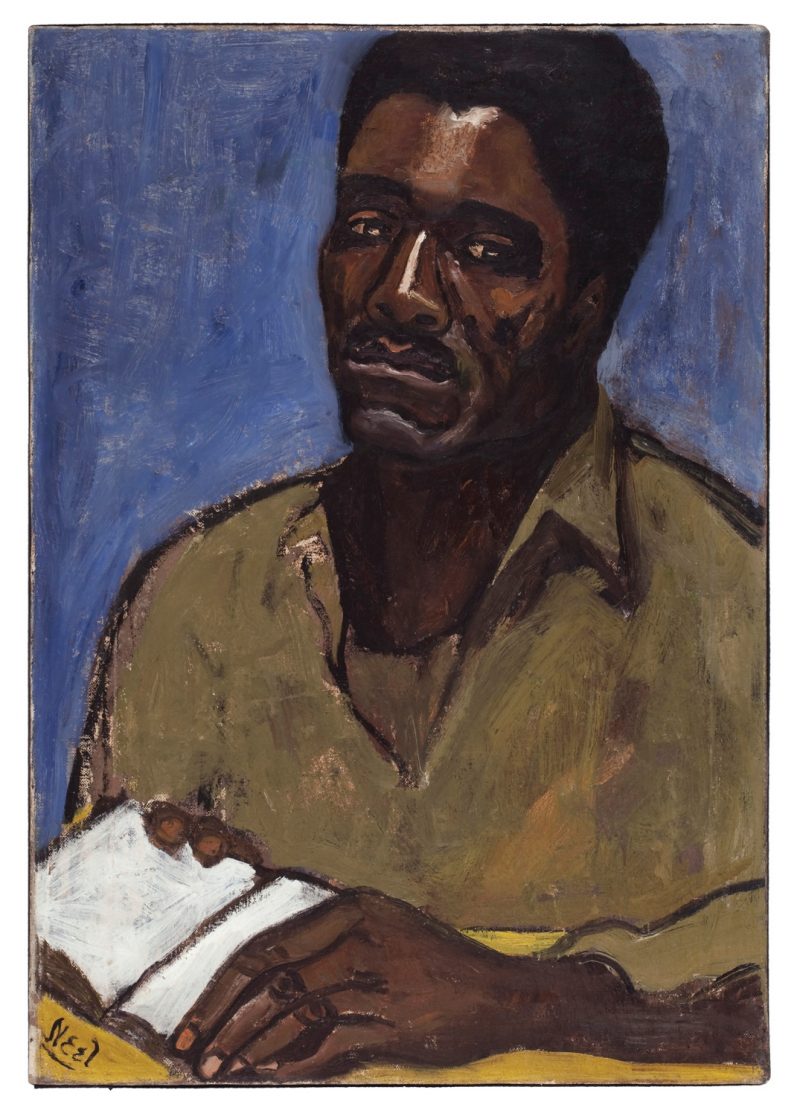
It may have been only natural, therefore, that when I happened to be visiting the L.A. Louver show of Neel’s ever-fresh portraits earlier this year, Harry Berger came immediately to mind. I urged gallery associate Elizabeth East to send him an illustrated catalog of the show. She did. A few weeks later came this email in reply:
Dear Ms. East,
This is a very belated but very appreciative note of thanks to you for sending the marvelous collection of Alice Neel portraits. Since receiving them I’ve been in Europe and elsewhere much of the time, and have only recently had the leisure to enjoy them the way they should be enjoyed. Neel’s portraits confirm my sense that portraits don’t merely offer likenesses of their sitters; they feature conflicted acts of posing. I love the way the wonderful play of oils conspires with the always-almost-parodic manner in which the sitters pose (even when serious, as in Hubert Satterfield and Richard) to emphasize the drama of the act of posing and being painted. They’re portrayed as if they self-consciously resist what they see the paint and the organization of poses is doing to them even as they flamboyantly submit to it—submit to the way the strong form-flattening outlines barely contain the energetic slashes of color that insist on showing as paint even while they claim to represent figures. This may account for the nervousness of gesture that belies the efforts of sitters who seem to be responding to a request to look cool (Joey Scaggs, Kris Kirsten, The Arab; Richard Gibbs competing with his shirt for my attention; the imperiousness and shattered arm-bitten elegance of poor Sea Biscuit; Stewart Mott’s tight right hand; the pathos of Frank Gentile’s meager shins overwhelmed by the size of his head and overwhelming his conversational bravura; Red Grooms waiting a little impatiently for Mimi’s portrait to be finished; Ann Sutherland Harris simultaneously displaying Neil and protecting him from display). And I think what gets to me most deeply is the way Neel centers the act of posing on the eyes, the gaze, the look. This brings out the basic conflict of the portrait genre: the conflict between the desire to pose and the fear of being exposed.
Thanks so much for sharing these with me.
Best wishes,
Harry
